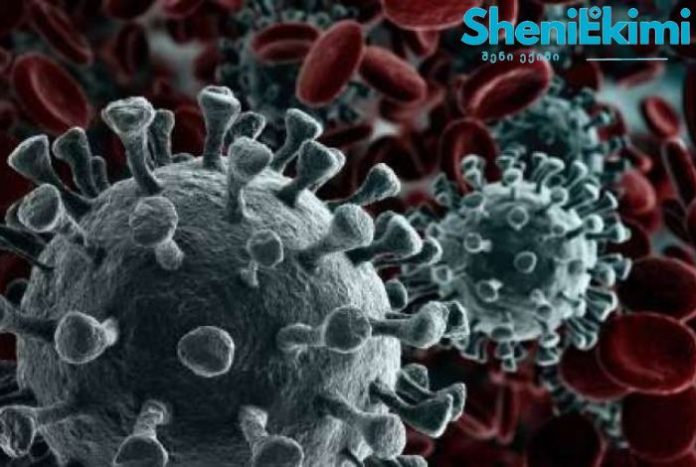COVID: ერთი რამ ცხადი გახდა: შეუძლებელია იმის პროგნოზირება, თუ ვის დაემართება ხანგრძლივი COVID.
Paxlovid, ეფექტურია COVID-19-ის სამკურნალოდ, მაგრამ ის არ აფერხებს ხანგრძლივ კოვიდს.
ვაქცინაცია ხანგრძლივი COVID-ის განვითარების საგრძნობლად ამცირებს.
გაირკვა, რომ პაქსლოვიდი, რომელიც ეფექტურია COVID-19-ის სამკურნალოდ, არ უშლის ხელს ხანგრძლივ COVID-ს. თუმცა, ახალი კვლევა უკავშირებს ვაქცინაციას ხანგრძლივი COVID-ის განვითარების რისკს.
ამ დროისთვის, მდგომარეობის დიაგნოზის მქონე პირებში 100-ზე მეტი სხვადასხვა სიმპტომი და ჯანმრთელობის პრობლემა დაფიქსირდა. მიუხედავად მკვლევარების ინტენსიური კვლევებისა, არც ხანგრძლივი COVID-ის მიზეზი და არც სპეციფიკური მკურნალობა არ არის დადგენილი. ექიმები ფოკუსირდებიან თითოეული ადამიანის სპეციფიკური სიმპტომების მართვაზე. დამოკიდებულია თითოეული შემთხვევის სირთულეზე, შეიძლება ჩაერთონ სპეციალისტები ნევროლოგიის, კარდიოლოგიის, ფსიქიატრიის, იმუნოლოგიის, პულმონოლოგიისა და ფიზიკური თერაპიის დარგში.
განმსაზღვრელი გარღვევის ნაკლებობის მიუხედავად, მკვლევარები აოცებენ ცოდნის მზარდ სხეულს ხანგრძლივი COVID-ის შესახებ. რამდენიმე კვლევის შედეგად დადგინდა, რომ SARS-CoV-2 ვირუსის ფრაგმენტებს შეუძლიათ ორგანიზმში შეიტანონ თავდაპირველი ინფექციიდან დიდი ხნის შემდეგ. ამან შეიძლება გამოიწვიოს მიმდინარე ანთება და შესაძლოა, ხელი შეუწყოს ზოგიერთ სიმპტომს.
ხანგრძლივი COVID, როგორც აუტოიმუნური დაავადება, SARS-CoV-2 ვირუსი ორგანიზმს საკუთარ ქსოვილებზე თავდასხმას იწვევს. უახლესი კვლევა ხაზს უსვამს იმუნური უჯრედების პოტენციურ როლს, რომლებიც ცნობილია მონოციტების სახელით, რომლებიც აფრთხილებენ სისხლის სხვა თეთრ უჯრედებს ინფექციის არსებობას. როგორც ჩანს, COVID ინფექციამ შეიძლება დააზიანოს იმუნური უჯრედების სტრუქტურა. ასევე არსებობს სპეკულაცია, რომ COVID ინფექციამ შესაძლოა გამოაღვიძოს არსებული ვირუსები, რომლებიც ადრე ორგანიზმში დორმანტად რჩებოდნენ. ეს შეიძლება შეიცავდეს ეპშტეინ-ბარის ვირუსს, რომელსაც აქვს სიმპტომები საერთო ხანგრძლივ COVID-თან. თითოეული ეს აღმოჩენა გამოკვეთს მკურნალობის პოტენციურ გამზირებს.
COVID: One thing has become clear: It is impossible to predict who will develop long COVID. Although a bit more common in those with severe COVID-19, it does occur in people who had a mild illness. It is now understood that Paxlovid, a medication effective in treating COVID-19, does not prevent long COVID. However, a new study links being vaccinated with a markedly lower risk of developing long COVID.
At this time, more than 100 different symptoms and health problems have been documented in people diagnosed with the condition. And despite intensive study by researchers throughout the world, neither the cause of long COVID nor a specific treatment have been identified. Lacking that, doctors focus on managing each person’s specific symptoms. Depending on the complexities of each case, this can involve specialists in the fields of neurology, cardiology, psychiatry, immunology, pulmonology and physical therapy.
Despite the lack of a definitive breakthrough, researchers are amassing a growing body of knowledge about long COVID. Several studies found that fragments of the SARS-CoV-2 virus can persist in the body long after an initial infection. This can cause ongoing inflammation and may contribute to some symptoms.
Another school of thought looks at long COVID as an autoimmune disease, in which the SARS-CoV-2 virus causes the body to attack its own tissues. A recent study highlights the potential role of immune cells known as monocytes, which alert other white blood cells to the presence of infection. It appears COVID infection can damage the structure of those immune cells, and thus scramble their behavior. There is also speculation that COVID infection may awaken existing viruses that had previously remained dormant in the body. These may include the Epstein-Barr virus, which has symptoms in common with long COVID. Each of these discoveries highlights potential avenues of treatment.
#datashvil #drpkhakadze #sheniganatleba #sheniambebi #sheniekimi



